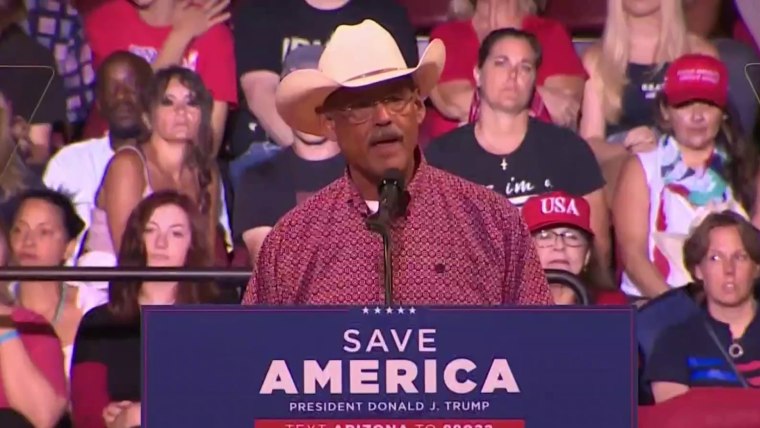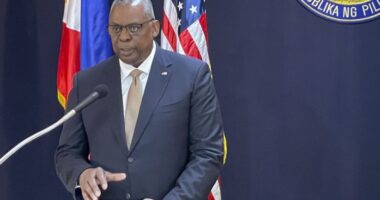A few months ago, Kathryn Teske says, two women showed up at her door in Spokane, Washington, with a clipboard listing “the names and information of everybody in our house” and using an aggressive tone.
“They said that they were from something along the lines of the Spokane County voter integrity board,” she recalled of the June 5 visit, noting that the women pointed to a Spokane County logo on their clipboard. “They said … ‘We’re checking into … voters to make sure there’s no fraudulent voting.’”
“I felt insulted,” Teske said. “I felt like, we weren’t being trusted. … We couldn’t figure out why. Like, what about us makes us suspicious voters?”
She said she reached out to her local elections officials to ask if they had sent staff to her door. She said the officials responded, “‘No, that definitely was not anybody with our office.’”

The canvassers at Teske’s door came amid a massive volunteer door-knocking effort organized by the Washington Voter Research Project, a conservative group that believes it has found “anomalies” on the state’s voter rolls since the 2020 election, despite multiple election audits by county, state and federal officials.
Glen Morgan, a conservative activist in the state, said he founded the organization last year with the goal of cleaning up Washington’s voter rolls. “We have about 350 volunteers in the state,” he said, estimating the group has knocked on more than 20,000 doors since 2021.
While he shies away from talking about the validity of the 2020 election, his organization is one of several conservative canvassing groups that emerged across the country following then-President Donald Trump’s re-election defeat and lies about widespread voter fraud.
“There are many … who still believe with no evidence that the 2020 election was stolen,” said Jonathan Diaz, a senior legal counsel for voting rights at the Campaign Legal Center. “And so [they] are trying to take matters into their own hands and go into the communities that they suspect of having perpetrated that fraud … and in doing so are intimidating and harassing members of those communities and discouraging them from voting in future elections.”
In the nearly two years since Trump lost the 2020 election, groups searching out election fraud have reportedly been knocking on voters’ doors in at least 11 states — Arizona, Colorado, Florida, Michigan, North Carolina, Nebraska, New Hampshire, New Mexico, Pennsylvania, Utah and Washington — raising concerns among civil rights watchdogs, some elections officials and even the Department of Justice.
With the 2022 midterm elections around the corner, voting rights advocates like Diaz worry that canvassers knocking on doors, asking intrusive questions, and suggesting there could be issues with people’s voter registrations or ballots could confuse voters — or even intimidate them enough to stay home on Election Day.
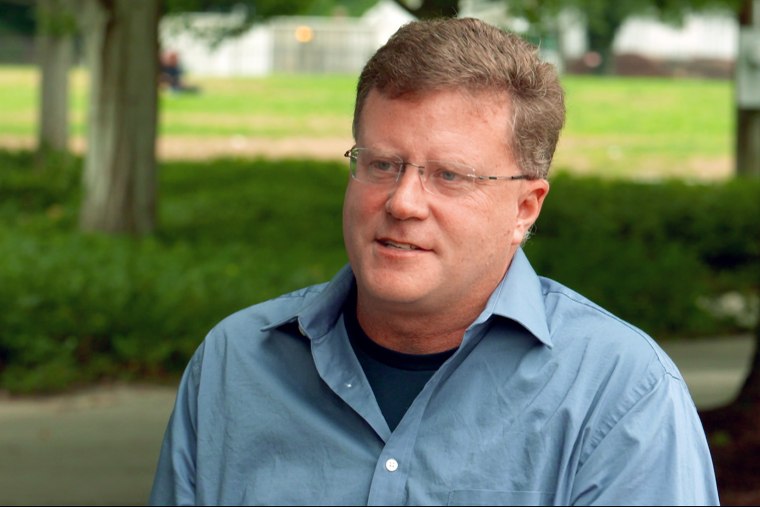
Elections officials in Washington state say they have received calls and written complaints about canvassers. Those complaints allege, in part, that some canvassers have become indignant when they didn’t get the answers or access they wanted, and that some canvassers are asking intrusive questions, like whom residents voted for.
The Washington Voter Research Project maintains that these claims have no basis in fact.
In Colorado, canvassing efforts by a group called the U.S. Election Integrity Plan have prompted a federal lawsuit from a coalition of organizations — including the Colorado Montana Wyoming State Area Conference of the NAACP. The lawsuit alleges canvassers are targeting “communities experiencing high growth of minority voters,” “deploying armed agents to knock on doors,” and accusing residents of “casting allegedly fraudulent ballots.”
Jessica Hays, an attorney representing The U.S. Election Integrity Plan called the allegations “frivolous and without merit,” arguing that the plaintiffs in the case “have not identified a single voter who was intimidated by a USEIP volunteer. Similarly, Plaintiffs have not identified any instance where a USEIP volunteer was armed during canvassing efforts.”
The House Committee on Oversight and Reform also launched an investigation into partisan investigation by Otero County, New Mexico, into the 2020 election, which included an “audit force” that went door to door canvassing voters. House Oversight Committee Chairwoman Carolyn Maloney, D-N.Y., and Rep. Jamie Raskin, D-Md., said in a statement that the efforts illegally interfered “with Americans’ right to vote by spreading disinformation about elections and intimidating voters.”
Washington’s Democratic secretary of state, Steve Hobbs, is raising concerns about the canvassing effort there, as well.
“This is part of a greater threat on our elections, on our very democracy,” he told NBC News. “We saw what happened on Jan. 6 in our nation’s capital. It happened here in our own state Capitol where you had people questioning the election … When you go door to door like this and put out a false narrative and … in some cases, lies, you erode the integrity of the elections.”
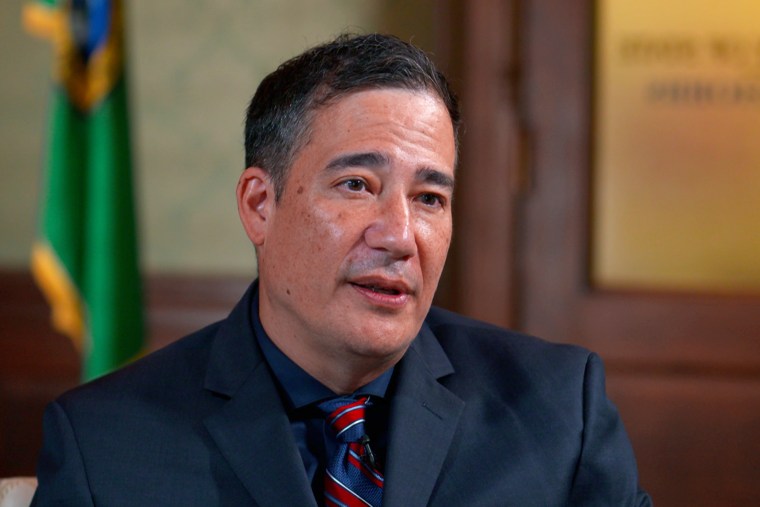
Morgan says there is nothing dangerous about what his group is doing. “The goal is just to make sure that we help the auditors,” he said, referring to county auditors who are responsible for running elections in the state. “So like, what my grandma used to do is walk around her precinct with the League of Women Voters … and they would just check to see that voters were registered to vote.”
He says his group obtains voter lists, which are public records, from the government and then compares address information against other accessible lists, like the U.S. Postal Service’s records on people who have self-reported that they moved and the Social Security Administration’s records of the deceased.
“That’s what narrows down our doorbelling list. … It’d be too hard to doorbell everybody and ineffective and inefficient and really tedious,” Morgan said.
In January, the Washington Voter Research Project began releasing some of its canvassing efforts’ findings online, claiming it had found several anomalies in voter rolls.
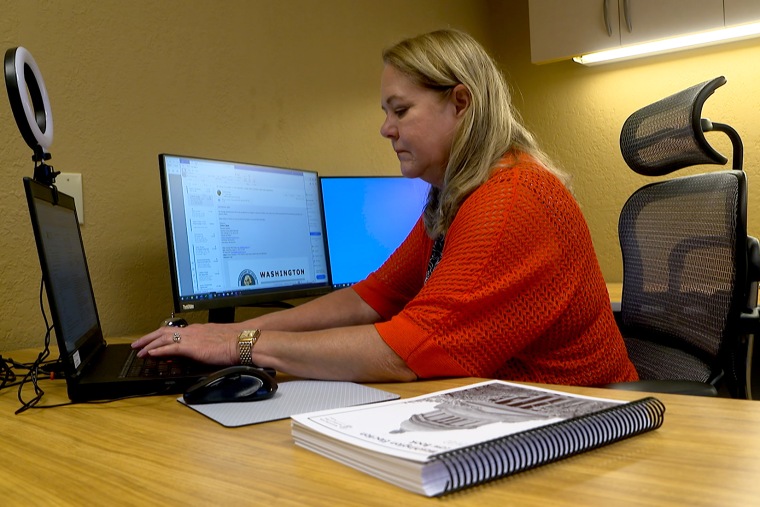
Thurston County Auditor Mary Hall said in an interview her office investigated a list from the group that alleged issues with “approximately 2,000” voters in the Olympia area. “We looked at every single one of them and the transaction detail for that voter … and we found no anomalies,” she said.
She says there are many reasonable explanations for why lists acquired by Morgan’s group might appear to have inaccurate information when canvassers are working to verify them on the ground. For example, she says, voter data in her office could have been updated several times since Morgan’s group pulled each one of the lists.
“Our voter registration database is very fluid,” Hall said. “We’re making hundreds of changes every single day. We’ve received them from the Department of Licensing, we receive phone calls, we receive emails that they’ve changed their address.”
To reassure the public that Thurston County’s voter rolls were up to date, Hall put out a report in response to the Washington Voter Research Project’s findings.
The report said 43% of the names the group gave her were already classified as inactive voters, who do not receive ballots. Another 23% were active voters who had updated their addresses since the last election. And 24% were military or overseas voters.
Hall’s colleague, Spokane County Auditor Vicky Dalton explains why military and overseas voters could prove especially confusing to canvassers who may not be well-versed in election law.
“Military and overseas civilians … have the right to be a registered voter at an address to which they have a connection. So they may not live there anymore … the current owner may not even know the history of the people who used to live there 30 years ago. But yet, that voter is still an American citizen and has the right to vote and has the right to use that address for precincting purposes.”
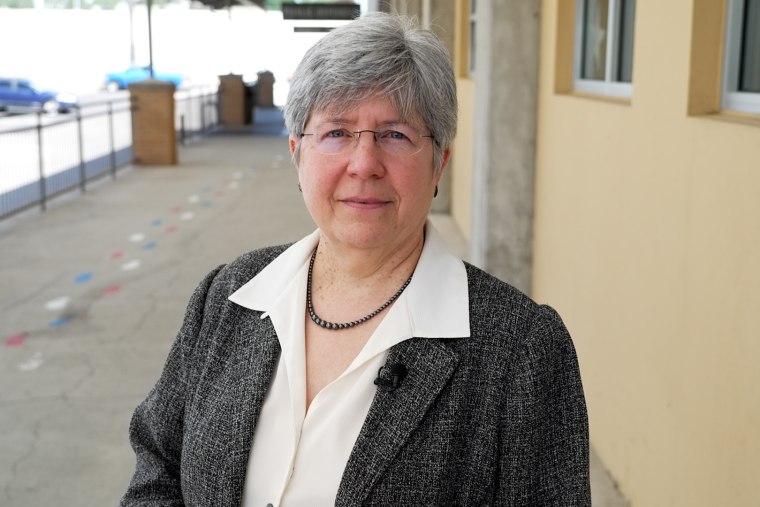
Although Hall said she held a Zoom call with the Washington Voter Research Project to explain that her office did not find evidence to corroborate the findings, Morgan said his group disputes her report.
State officials in Washington are also concerned about several complaints suggesting canvassers are impersonating government employees.
One Spokane area resident, who declined to be named out of fear of retaliation, said the people who knocked on her door claimed to be working on behalf of the county auditor and the secretary of state. The resident said that, upon being pressed, the canvassers eventually said they were with the Washington Voter Research Project.
Additional complaints filed with the Spokane County sheriff and the Clark County auditor, which were viewed by NBC News, accuse canvassers of carrying fake badges with words like “Official Election Auditor” printed on them. The Spokane and Thurston county auditors — responsible for running elections in their counties — also said they received complaints of canvassers placing county seals on clipboards and even a briefcase.
“No county auditor, no county government, not the secretary of state’s office would ever go to your house to find out how you voted or if you vote if you’re a voter,” Hobbs said.
Upon hearing these reports, he said, he put out a video and a statement telling voters they don’t need to answer canvassers’ questions. He also said he has talked to other secretaries of state who have gotten reports of similar groups going door-to-door and worked with Washington’s county auditors to get the word out to local jurisdictions.
Morgan said any claims canvassers working with his Washington Voter Research Project are implying they are with state or county elections officials are baseless. “We have these volunteer badges that just say volunteer and they say Washington voter research project on them. And how you confuse that with a county employee thing? … I don’t understand how that can happen,” he said.
With the midterm elections on the horizon, concern is mounting among some officials that canvassers are spreading doubt about the election process as they go door to door.
“All of the disinformation and misinformation is undermining our democracy and threatening our republic,” Hall said. “And we really have to rebuild trust in our elections. And we’re going to have to do that one voter at a time.”
Source: | This article originally belongs to Nbcnews.com


